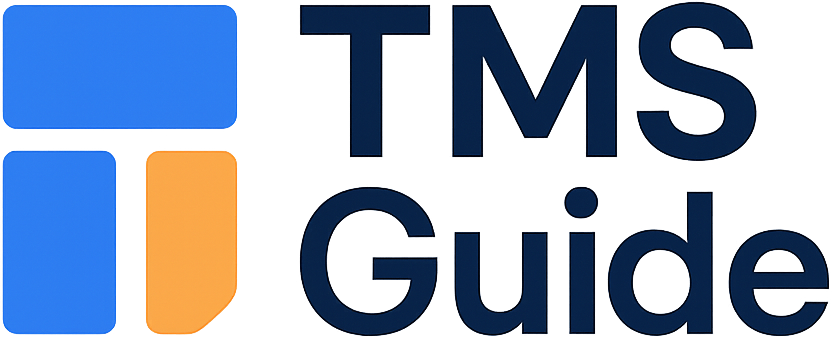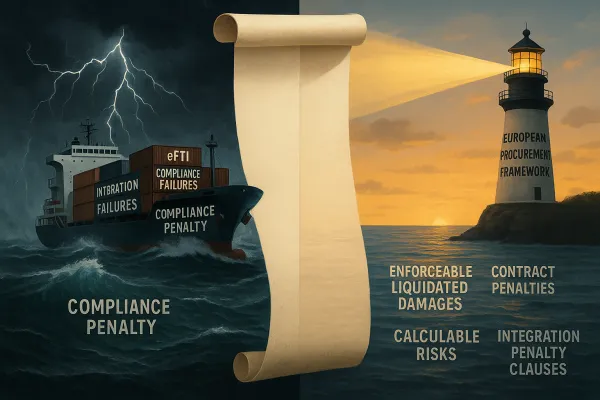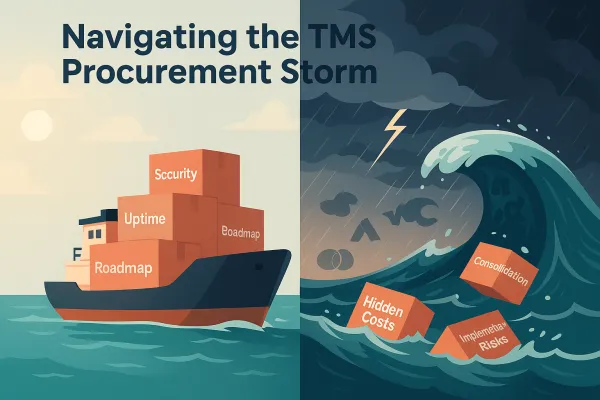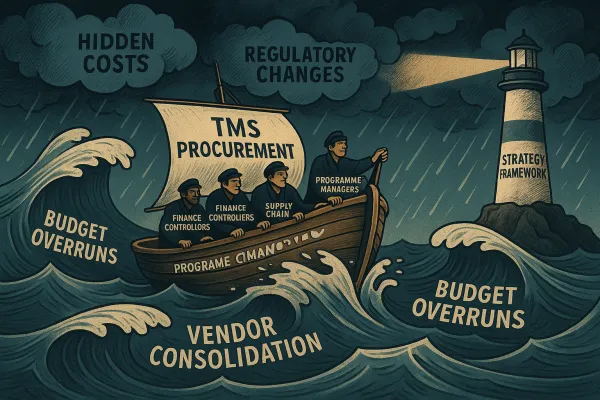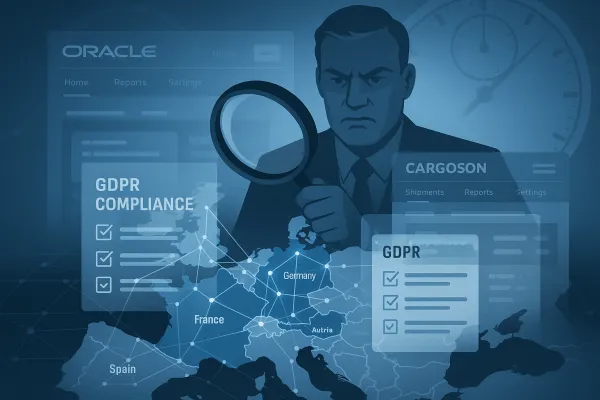TMS RFP Regulatory Readiness: Essential eFTI and Carbon Reporting Requirements for European Procurement
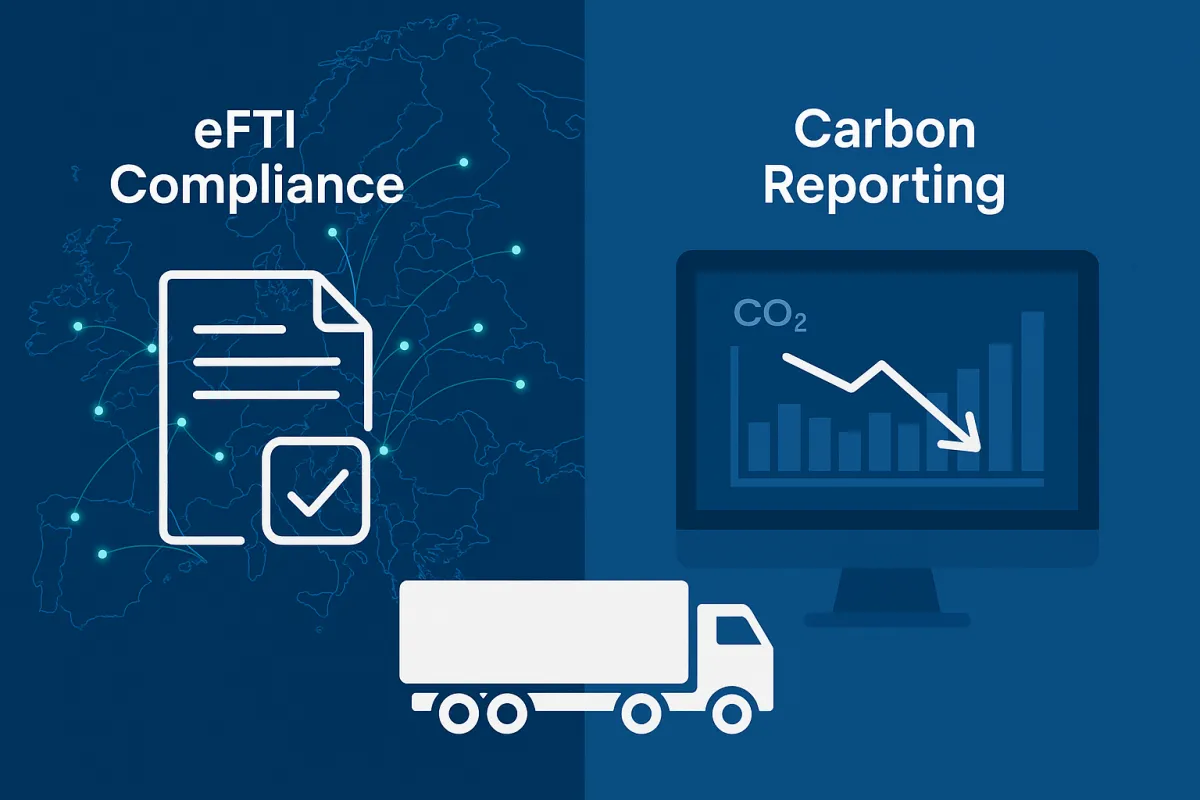
European procurement teams selecting transport management systems in 2025 face regulatory deadlines that make traditional RFP approaches obsolete. With the eFTI Regulation applying in full from July 2027 and Member State authorities required to accept information shared electronically by operators via certified eFTI platforms, the window for planning compliant solutions has narrowed significantly.
Starting in 2025, CSRD will mandate that businesses have Paris Agreement-aligned emissions reduction plans to reach net zero by 2050, affecting nearly 50,000 EU companies. Yet most procurement processes still focus on yesterday's TMS capabilities rather than tomorrow's regulatory requirements.
The Regulatory Reality: Why Standard TMS RFPs Fall Short in 2025
Traditional TMS RFPs ask about load optimization and route planning. They miss the regulatory compliance requirements that become mandatory business functions by 2027. According to Commissioner for Sustainable Transport and Tourism Apostolos Tzitzikostas, digitalizing transport and logistics systems supports efficiency while adding significant cost savings of up to €1 billion per year for the industry.
The Corporate Sustainability Reporting Directive (CSRD) requires companies to report on scope 3 emissions, which have significant implications for scope 3 emissions reporting. For most companies, shippers must measure and report emissions from all transport modes—road, sea, air, and rail.
The compliance gap creates competitive advantage for prepared procurement teams. Leading TMS vendors like MercuryGate, Descartes, and Cargoson are already building eFTI integration capabilities and carbon reporting modules. Procurement teams that update their RFP requirements now will access better solutions and more competitive pricing than those waiting until 2026.
eFTI Readiness: Essential RFP Requirements for Digital Document Compliance
As of January 2026, eFTI platforms and service providers can start preparing for operations, with Member States authorities able to start accepting data stored on certified eFTI platforms for inspection. Your TMS RFP must address this timeline with specific technical requirements.
Include mandatory sections for:
- Platform certification roadmap with specific milestone dates
- Data format compliance with EU requirements for authorities to accept electronic data when shared by businesses via eFTI-compliant platforms, housed on secure, certified IT platforms that integrate with existing data management systems and share data only upon explicit inspection request using unique access links in machine-readable formats
- Integration timeline with existing customs and regulatory systems
By September 2025, the European Commission is expected to finalize additional specifications, outlining detailed technical and functional requirements for IT systems as well as certification processes for eFTI platforms and service providers. Your RFP should require vendors to commit to compliance with these forthcoming specifications.
Technical Specifications Your RFP Must Address
Your vendor evaluation must include platform certification status and timeline commitments. Request proof of participation in pan-European consortiums like eFTI4EU, which includes 9 Member States and is financed under the Connecting Europe Facility (CEF) program of the European Commission.
API compatibility requirements should specify real-time data exchange capabilities with certified eFTI platforms. Business data housed on secure, certified IT platforms must integrate with companies' existing data management systems and allow selective data sharing with authorized business partners through tailored access rights.
Carbon Reporting Capabilities: CSRD and Beyond
The ESRS requires companies to report emissions across three scopes, with Scope 3 covering indirect emissions from the value chain, including emissions from transport operations. Modern TMS solutions must automatically calculate and report these emissions rather than treating carbon tracking as an add-on module.
Your RFP should require automated carbon calculation integrated into route planning and carrier selection. TMS solutions should automatically include carbon costs and penalties in transport planning by default, allowing users to allocate a cost to carbon and make sustainable decisions, with many organizations using their carbon offset pricing to define carbon cost.
Leading solutions from Blue Yonder, Princeton TMX, and Cargoson now integrate carbon calculation directly into optimization engines. In one e-commerce case, TMS integration with an ESG dashboard helped show a 19% reduction in per-shipment emissions within six months, enabling companies to build sustainability roadmaps grounded in real-world numbers.
Scope 3 Emissions: The Procurement Team's New Responsibility
Scope 3 emissions refer to indirect emissions embedded in a company's value chain, including emissions from purchased goods and services, business travel, employee commuting, and waste disposal, with the CSRD mandating reporting on environmental, social, and governance (ESG) aspects including climate change.
Your RFP language should require granular emissions tracking by transport mode, carrier, and route segment. A pivotal TMS component is the ability to track and report on carbon emissions associated with logistics activities, enabling businesses to monitor their environmental impact accurately, set reduction targets, and report progress while supporting transparency and accountability.
Financial Impact Assessment: TCO Beyond Implementation
Regulatory non-compliance costs exceed compliant solution premiums. Rules such as California's Clean Truck Check are forcing fleets to capture granular emissions data, with shippers benchmarking carriers on carbon per shipment, and many tender algorithms now weighing emissions alongside rate and service, making regulatory compliance a catalyst for wider digital transformation.
Build business cases around compliance cost avoidance rather than traditional freight savings. Vendors capable of quantifying carbon reductions in parallel with freight savings gain strategic advantage, with the transportation management system market rewarding providers that demonstrate provable efficiency and sustainability metrics alongside seamless integration.
Your TCO model should include:
- Regulatory compliance costs avoided through automated reporting
- Carbon offset cost reductions through optimized routing
- Audit and assurance cost savings from integrated data tracking
- Competitive advantage from early regulatory readiness
Vendor Evaluation Framework: Scoring Regulatory Readiness
Weight regulatory capabilities at minimum 30% of your total scoring matrix. Traditional TMS features matter less if your solution can't handle 2026-2027 regulatory requirements. To prevent greenwashing and bring sustainability reporting up to the level of rigor required for financial reporting, the CSRD introduces audit assurance requirements beginning with limited assurance in 2026, requiring high levels of data accuracy, completeness, and controls.
Score vendors on:
- eFTI certification timeline and commitment level
- Carbon reporting accuracy and audit trail capabilities
- Regulatory update processes and compliance support
- Integration capabilities with certified platforms
Manhattan Associates, Descartes, and Cargoson have varying levels of regulatory readiness. Evaluate their specific roadmaps rather than accepting general sustainability promises.
Critical Questions for Vendor Demonstrations
Ask specific questions about eFTI platform integration timelines. When can they demonstrate data exchange with certified eFTI platforms? What specific certification processes are they participating in?
Modern TMS solutions should provide analytics dashboards and reporting tools that highlight KPIs related to sustainability, such as fuel consumption, carbon emissions and route efficiency. Request live demonstrations of carbon reporting accuracy and audit trail capabilities.
Test their regulatory update processes. How do they handle changing compliance requirements? What support do they provide during regulatory transitions?
Implementation Timeline Considerations
Key regulatory milestones include September 2025 when the Commission adopts remaining eFTI implementing specifications, January 2026 when eFTI platforms can start preparing for operations, and July 2027 when the eFTI Regulation applies in full.
Plan TMS deployment to align with these dates. Implementation typically requires 6-18 months depending on complexity. Starting procurement in Q2 2025 allows implementation completion by early 2026, providing testing time before full regulatory enforcement.
Consider phased rollouts that prioritize regulatory compliance modules. MercuryGate, Alpega, and Cargoson offer different implementation approaches to regulatory transition management. Evaluate their specific support models during vendor selection.
Your procurement success depends on recognizing that TMS selection in 2025 is fundamentally about regulatory readiness, not just operational efficiency. The window for preparation is closing rapidly, but early movers will access better solutions, competitive pricing, and regulatory compliance that becomes a business advantage rather than a compliance burden.
